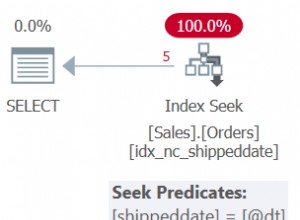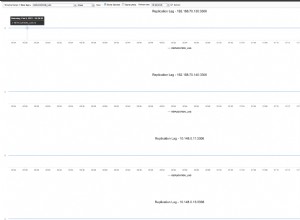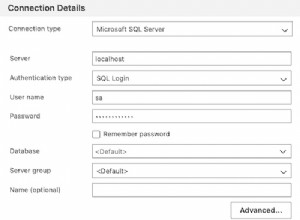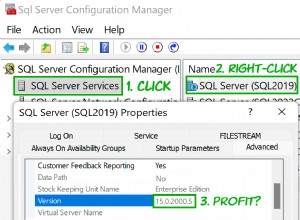Supponendo (per il bene dell'esempio ) che le tue deals la tabella assomiglia a
--------------------------- | id | deal_date | deal | --------------------------- | 1 | 2014-03-10 | Deal1 | | 2 | 2014-03-11 | Deal2 | | 3 | 2014-03-12 | Deal3 | ---------------------------
Ora il codice della tua procedura potrebbe apparire
DELIMITER //
CREATE PROCEDURE get_deals()
BEGIN
-- create a temporary table and fill it with the desired subset of data
-- Apply WHERE and ORDER BY as needed
DROP TEMPORARY TABLE IF EXISTS tmp_deals;
CREATE TEMPORARY TABLE tmp_deals
SELECT id, deal_date, deal -- explicitly specify real column names here. Don't use SELECT *. It's a bad practice.
FROM deals
ORDER BY id DESC;
-- write the resultset to the file
SELECT *
INTO OUTFILE '/path/to/deals.txt'
FIELDS TERMINATED BY ',' OPTIONALLY ENCLOSED BY '"'
LINES TERMINATED BY '\n'
FROM tmp_deals;
-- return the resultset to the client
SELECT * FROM tmp_deals;
END//
DELIMITER ;
Dopo averlo eseguito:
CALL get_deals();
Sul client otterrai:
--------------------------- | id | deal_date | deal | --------------------------- | 3 | 2014-03-12 | Deal3 | | 2 | 2014-03-11 | Deal2 | | 1 | 2014-03-10 | Deal1 | ---------------------------
E il contenuto del file sarà:
3,"2014-03-12","Deal3" 2,"2014-03-11","Deal2" 1,"2014-03-10","Deal1"
Nota: quando si utilizza OUTFILE MySQL richiede che il file venga creato nuovo . Se lasci il file nella directory di output, alla chiamata della procedura successiva otterrai il seguente errore
Un modo per aggirare il problema è aggiungere un timestamp al nome del file all'interno della procedura stessa o passando un valore tramite un parametro.




